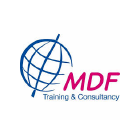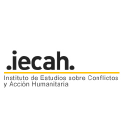WORKING WITH DG ECHO AS AN NGO PARTNER | FPA 2014 - 2020
PROCUREMENT IN HUMANITARIAN AID
The nature and objectives of humanitarian aid, the context in which humanitarian actions are implemented, including their rather short implementation period, and the need to guarantee, in all cases, the quality assurance of specific supplies, impose specific obligations on the Contracting Authorities while, on the other hand, justify flexible procedures and restricted market consultations.
When implementing an action, the partner or its implementing partners will award procurement contract to purchase services, goods, and works, or even, in exceptional cases, property. In managing these contracts, the partner can apply its own procurement procedures. When launching a procurement procedure, regardless of the value of the procurement contract or of the percentage of funding, the partner has to ensure that its own procedures comply with:
-
Humanitarian principles
-
Special Provisions that apply irrespectively of the value of the contract to be awarded, even when ECHO is not the single largest donor and even when such rules are not foreseen in partners' procedures, for the procurement of:
-
Rules to procure from a Humanitarian Procurement Centre
-
Rules on Derogations and Exceptions
This provisions and principles are complementary to, and shall be read in conjunction with, the general principles set out in the Framework Partnership Agreement.
PROCUREMENT BY IMPLEMENTING PARTNERS AND CONSORTIUM
The Partner procurement rules should also establish the applicable rules for the Implementing partners, including members of a possible consortium. As a good practice, the partner and implementing partners should establish in writing (e.g. in a MoU) whether the implementing partner will apply:
-
the partner's procurement rules, or
-
its own rules. In this case, the MOU should also specify that the rules of the implementing partners must be in line with Annex III to the FPA. The lead partner can also ask a copy of the procurement rules to ensure that they are in line with Annex III.
In either case, the lead partner has the obligation to ensure that the implementing partners or consortium members apply the correct rules. It is considered good practice for the lead partner to ask to produce a procurement table to ensure both the correct application of the rules as well as the efficient co-ordination of procurement activities.
RELATIONS WITH CONTRACTORS
There are no direct links between ECHO and the contractors of the partners. Partners are responsible for the implementation of the procurement contracts vis-à-vis the Commission.
However, the partners must make sure that the following obligations of the General Conditions apply also to contractors: intellectual and industrial property rights , liability for damage , rights of access , and conflict of interest.
ECHO'S CHECKS ON PROCUREMENT PROCEDURES
ECHO will not certify the procurement procedures of the partners. Respect of the procurement mandatory principle will be checked by ECHO during the audits, either during field or HQ audits.
The establishment of proper procedures for documentation of the procurement is the responsibility of the partner. The standard tender documentation and contractual instruments of the partner should include the necessary detail to show that it has duly performed its duties.
Where the Commission becomes aware, through an on-site audit or any other means that the partner's internal rules do not provide sufficient safeguards or procedures to ensure an adequate respect for Annex III, the Commission may make recommendations or it may request that the partner complements or replaces the procedures already in place.
Non-compliance with these recommendations may result in the termination of the Framework Partnership Agreement.
WHICH CONSEQUENCES IF THE ACTION DOES NOT COMPLY WITH THE ANNEX III?
The non-compliance with the Annex III may lead to considering the costs ineligible or may lead – depending on the seriousness of the breach – to reducing the EU financial contribution.
Costs may be declared ineligible when:
-
the procurement did not support the timely, efficient and effective achievement of the results;
-
the contract does not offer the best value for money or the lowest price;
-
the conditions concerning the visits, audits, checks and inspections are not guaranteed by the contractors.
EU financial contribution may be reduced when:
-
Evidence is found of non-compliance with Annex III.
ECHO may also disallow related costs or reduce its contribution in case the procurement rules of the partner have not been followed and there is an absence of due authorisation and documentation for an exception from the procurement rules of the partner. The decision to disallow or to reduce the contribution will depend on the nature of the non-respect of partner's rules.
In case of serious or repeated non-compliance, ECHO may also terminate the Specific Grant Agreement or even the FPA.
REFERENCE, DOCUMENTS & USEFUL LINKS





